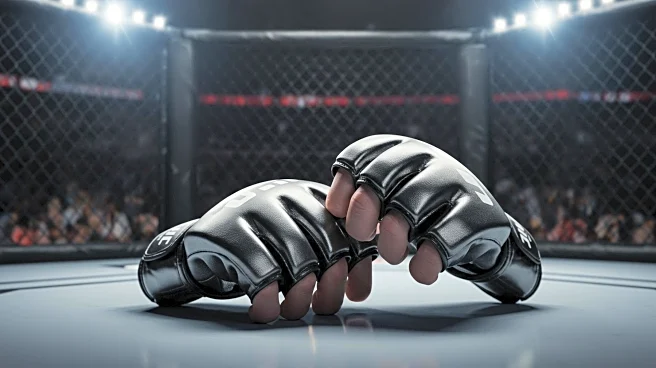What's Happening?
Japanese mixed martial artist Kai Asakura is preparing to solidify his presence in the UFC with an upcoming fight against Tim Elliott at UFC 319. Asakura, who made his UFC debut challenging for the title at UFC 310 in Las Vegas, faced a tough defeat against Pantoja. Despite the setback, Asakura remains a prominent figure with a large fanbase and an impressive highlight reel. His journey in the UFC began after the organization sought contenders beyond its existing roster, recognizing Asakura's potential to bring a UFC belt back to Japan. The upcoming fight against Elliott is seen as a crucial step in Asakura's path to redemption and establishing himself as a formidable contender in the UFC.
Why It's Important?
Kai Asakura's entry into the UFC represents a significant moment for Japanese mixed martial arts, as he aims to become a leading figure in the sport internationally. His potential success could inspire more Japanese fighters to pursue careers in the UFC, thereby increasing the global diversity of the sport. Asakura's fight against Tim Elliott is not only a personal challenge but also a chance to prove his capabilities on a larger stage. A victory could position him as a serious contender for future title opportunities, impacting the dynamics of the UFC's competitive landscape. This fight is pivotal for Asakura's career and could influence the UFC's strategic decisions regarding international talent acquisition.
What's Next?
Following the fight against Tim Elliott, Kai Asakura's performance will likely determine his trajectory within the UFC. A win could lead to more high-profile matchups and potentially another shot at the title. The UFC may continue to explore international talent, especially from regions like Japan, to diversify its roster and expand its global reach. Asakura's progress will be closely watched by fans and analysts, with potential implications for future matchmaking and promotional strategies within the UFC.
Beyond the Headlines
Asakura's journey highlights the challenges faced by international fighters in adapting to the UFC's competitive environment. His experience underscores the importance of resilience and strategic planning in pursuing a successful career in mixed martial arts. The cultural exchange and representation brought by fighters like Asakura enrich the sport, offering diverse perspectives and styles that contribute to its evolution. This development may also encourage collaborations and partnerships between the UFC and international sports organizations, fostering a more inclusive and globally connected fighting community.









